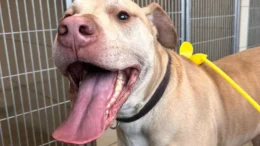HARRISBURG (AP) — Pennsylvania’s state Senate on Wednesday unanimously approved legislation to distribute just over $900 million to aid schools and hospitality-related businesses hit hard by the coronavirus, as well as people struggling to pay rent or utility bills.
The bill still requires approval from the state House of Representatives and Gov. Tom Wolf.
Most of the $912 million being directed by the bill is from Pennsylvania’s share of federal aid approved by Congress in a coronavirus recovery package it passed last month.
Some of it, $145 million, is reserve cash from a worker’s compensation fund that Wolf last month had asked lawmakers to send to businesses hit hard by the pandemic.
The money would be available through counties in grants of up to $50,000 for owners of bars, restaurants and hotels.
Industry representatives said the money is helpful for a little while for those that receive it, but it won’t reach many in Pennsylvania’s industry of more than 30,000 such businesses that are hurting and remain under pandemic restrictions.
Wolf’s office would not say whether the Democrat supports the bill, but said it would continue to work with the Republican-controlled Legislature on it.
“The governor’s office has been working with the General Assembly on the appropriation of these federal funds in an effort to find agreement to get this much needed relief out as quickly as possible,” Wolf’s office said in a statement.
House Majority Leader Kerry Benninghoff, R-Centre, said the House will move quickly on the bill, but did not say whether members there will seek changes.
The majority of the money, $570 million, would be divided up among counties based on population to help people struggling to pay rent or utilities.
Landlords and tenants would be eligible to apply, with priority under federal guidelines for lower-income households or those where someone is unemployed.
The rest of the money, $197 million, would be distributed to educational institutions that did not get a cut of the $2.2 billion in federal coronavirus aid that public schools and charter schools are receiving under last month’s federal coronavirus recovery package. Most of that money would go to private schools.
Pennsylvania’s hospitality sector has been the hardest hit in the pandemic. It still has yet to recover more than 170,000 jobs lost during the pandemic, as of December’s state employment report. That’s one in three in the industry before the pandemic hit.
Eligible applicants for the $145 million in hospitality sector grants cannot be publicly traded businesses — a provision that might limit some larger chains — but it still casts a wide net, allowing businesses with as many as 500 employees at one location and up to $15 million in net worth.
“Once you start spreading that out, it doesn’t go very far,” said Chuck Moran, executive director of the Pennsylvania Licensed Beverage and Tavern Association. “It’s a start, don’t get me wrong. We’re appreciative and we support the bill, but more needs to be done financially.”
Applicants must be able to show revenue losses of at least 25% during the pandemic, but priority will be given to those with more than 50% in revenue losses and those that have not already received government pandemic aid.
Restaurants and bars are still under various state pandemic restrictions, including limiting them to at least 50% of capacity and restricting bar seating.
Last fall, the Pennsylvania Restaurant and Lodging Association had sought $250 million just for smaller restaurants alone from Pennsylvania’s share of federal pandemic recovery aid. The state, however, used the money to plug budget holes.
“We need funds, we need help, but what we really need is to get to a point where we can all reopen safely,” said Melissa Bova, the organization’s vice president of government affairs.








































